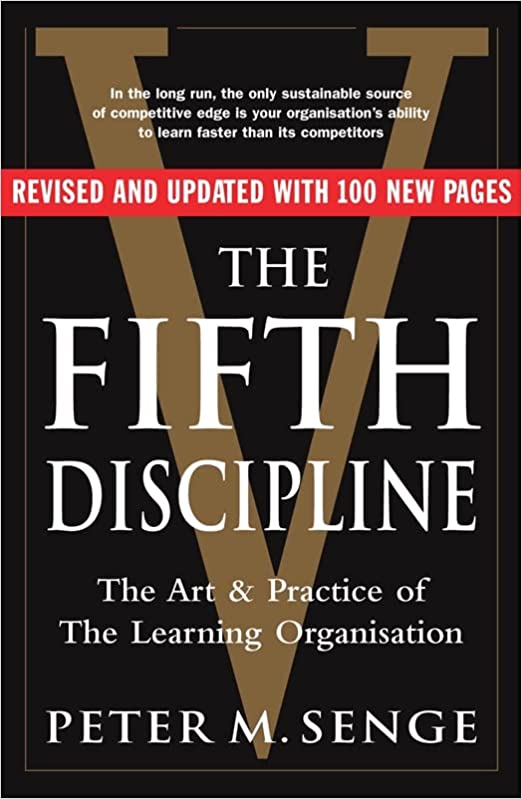The Fifth Discipline – Peter M. Senge

“The Fifth Discipline” focuses on the concept of the “learning organization,” which is an organization that is able to continuously adapt and improve in response to changes in its environment. The five disciplines that Senge identifies as necessary for creating a learning organization are systems thinking, personal mastery, mental models, shared vision, and team learning.
The Importance of Systems Thinking
Systems thinking is a crucial skill for leaders and managers who want to create successful organizations. By understanding how different parts of a system are interconnected and how changes in one area can impact the whole, leaders can make better decisions and create more effective solutions to complex problems.
The Power of Dialogue
Dialogue is a way of communicating that is focused on understanding and learning, rather than convincing or persuading. When individuals and teams engage in dialogue, they can build deeper relationships, share knowledge and perspectives, and create more effective solutions to complex problems.
The Challenge of Overcoming Organizational Barriers
Creating a learning organization requires overcoming a variety of organizational barriers, including resistance to change, siloed thinking, and a focus on short-term results over long-term success.
The Importance of Continuous Learning and Improvement
Creating a learning organization is an ongoing process that requires continuous learning and improvement. By embracing a culture of learning and committing to ongoing improvement, organizations can achieve long-term success and stay competitive in a rapidly changing world.
Team Learning
Team learning is the ability of a group to learn and improve together. When teams are able to share knowledge, collaborate effectively, and learn from their mistakes, they can become highly effective and innovative problem-solvers.
Personal Mastery
Personal mastery is the discipline of continually improving oneself. By developing skills such as self-awareness, emotional intelligence, and the ability to reflect on one’s own experiences, individuals can become more effective leaders and contributors to the organization.
The Importance of Feedback
Feedback is essential for learning and improvement. By providing feedback to individuals and teams, leaders can help them understand what they are doing well and what they need to improve, leading to greater success and effectiveness.
The Need for Systems Thinking in Education
Systems thinking can be applied to education, helping educators to create more effective learning environments that support the development of critical thinking, problem-solving, and other essential skills.
Mental Models
Mental models are the assumptions, beliefs, and values that people use to make sense of the world. By becoming aware of their own mental models and challenging them, individuals and organizations can break free from limiting beliefs and create new ways of thinking that lead to greater success.
Shared Vision
A shared vision is a compelling picture of the future that inspires and motivates people to work together towards a common goal. When everyone in an organization shares a clear and compelling vision, they are more likely to work together effectively and achieve their goals.
